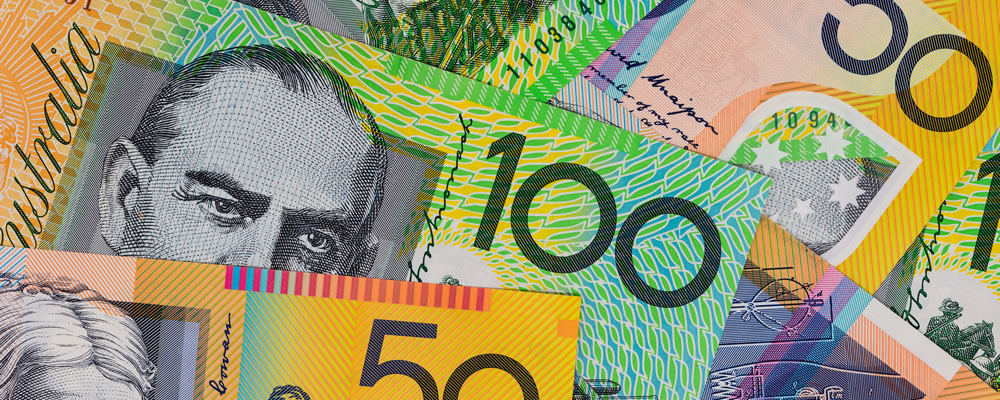Markets remain in a somewhat jittery mood ahead of the Jackson Hole Symposium, although this was not enough to return the Euro to Australian Dollar exchange rate to an uptrend.
- German business sentiment declined in August – Persistent negative impact from uncertainty weighed on Euro
- Market uncertainty over odds of Fed rate hike benefitted ‘Aussie’ – Risk appetite increased thanks to mixed US data
- Improved GfK Consumer Confidence Survey failed to boost EUR AUD exchange rate – Worries remain over outlook of Eurozone’s powerhouse economy
- Jackson Hole Symposium forecast to provoke further market volatility – Hawkish commentary from Fed Chair Yellen could reignite rate hike bets
Signs from the Eurozone have proven rather mixed in recent days, suggesting that the currency union has suffered a greater dampening effect from the UK’s vote to leave the EU.
Australian Dollar (AUD) Boosted as Decreased Fed Rate Hike Speculation Benefited Commodities
The appeal of the Euro (EUR) deteriorated on Thursday after the German IFO Business Sentiment Survey showed an unexpected dip in confidence. Investors had anticipated a modest uptick in domestic sentiment in August, leading to some disappointment when the various measures declined sharply instead. Both the current assessment and the expectations indexes pointed towards a deterioration in German confidence, suggesting that the Eurozone’s powerhouse economy has not been able to shrug off the negative impact of recent market uncertainty.
Confidence in the Australian Dollar (AUD), meanwhile, was boosted by a general increase in market risk appetite. With markets reining in speculation that the Federal Reserve could be poised to raise interest rates before the end of the year the ‘Aussie’ benefitted from the relative weakening of the US Dollar (USD). Iron ore continued to perform well, with commodity prices pushed higher as investors piled back into higher-yielding assets. This saw the Euro to Australian Dollar (EUR AUD) exchange rate weaken, despite a warning from Australian Treasurer Scott Morrison over the complacent attitude to government debt.
Stronger German Consumer Confidence Failed to Boost Euro (EUR) Demand
Despite the GfK Consumer Confidence Survey painting a slightly more positive picture of sentiment within the German economy this failed to particularly shore up the single currency ahead of the weekend. Although consumers remain one of the major drivers of the domestic economy concerns remain over other areas of economic growth, particularly as investment has been seen to have weakened considerably in the second quarter. With the outlook of the currency union far from solid investors have seen little reason to favour the Euro over its rivals, keeping the EUR AUD exchange rate on a downtrend.
Even though there has been a lack of fresh Australian data on Friday that did not prevent the antipodean currency from holding onto its recent gains. Ahead of comments from Fed Chair Janet Yellen at the Jackson Hole Symposium the appeal of the higher-yielding ‘Aussie’ has endured. If the Fed continues to hold off on raising interest rates there would be less pressure on the Reserve Bank of Australia (RBA) to cut rates in response. Thus, if Yellen takes a more dovish tone or fails to offer particular comment on monetary policy the Australian Dollar is expected to experience a further boost.
EUR AUD Exchange Rate Forecast: Weaker Eurozone Business Sentiment Could Weigh on Euro
Investors will be closely watching business confidence data from the rest of the Eurozone next week, with both Italy and Spain posting their latest results. If sentiment across the currency union is shown to have remained weighed down by the uncertainty stemming from the Brexit vote the Euro is expected to retreat further. Any additional signs of slowdown within the German economy are also likely to weigh on market demand, as researchers at Deutsche Bank noted:
‘Germany has had the world’s largest current account surplus in the world over the past three years. The surplus will decline not only due to domestic factors such as an ageing population, the housing boom, and record immigration. It will also weaken as a result of a structural slowdown in the growth of global trade.’
The Australian building permits result for July will be released on Tuesday, which could encourage additional demand for the ‘Aussie’. Signs of stronger housing construction would suggest that pressure on the domestic house market could begin to ease. Higher levels of construction could also improve confidence in the robustness of the Australian economy.
Current EUR, AUD Exchange Rates
At the time of writing, the Euro to Australian Dollar (EUR AUD) exchange rate was trending lower around 1.4788, while the Australian Dollar to Euro (AUD EUR) pairing was on an uptrend in the region of 0.6760.



